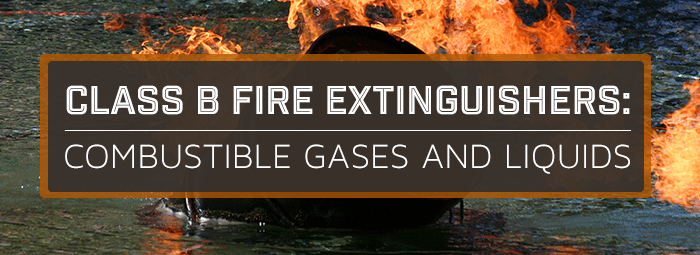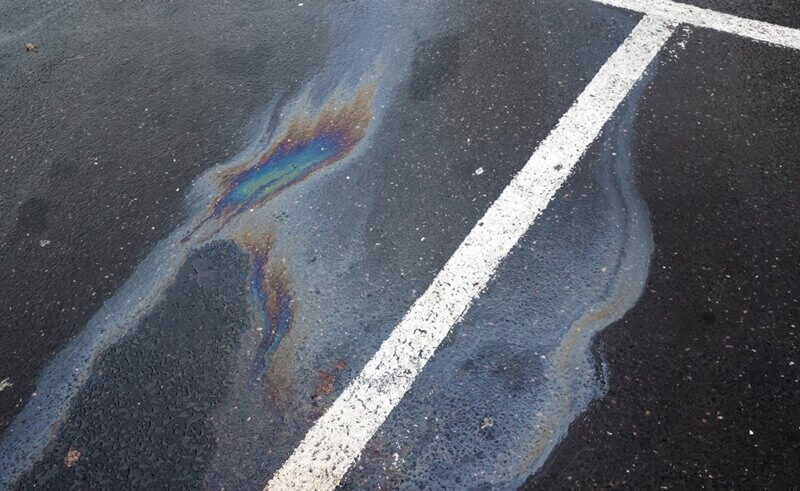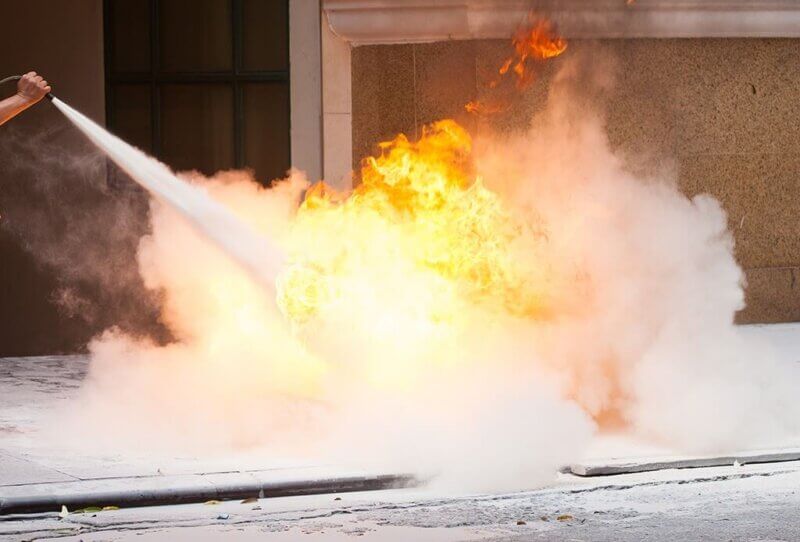
Fire safety is important in any home or workplace. In order to create an effective safety plan, you need to know what kinds of fires might happen in your environment. Class A fires burn ordinary combustibles, but Class B fires burn combustible liquids or gases. Class B fires require special preparation and cannot be handled in the same way as Class A fires. We will teach you everything about Class B fires and the different Class B extinguishers to fight them.
Class B fires are not really different from other fires in that they have the same basic “fire tetrahedron” elements. In order to have a fire, you need fuel, oxygen, heat and a chemical reaction. The only difference is the fuel.
The fuel for a Class B is a combustible gas or liquid. Any of the following may be the fuel source for a Class B fire:
These materials are typically found in lacquers, solvents, oils, and oil-based paints. Grease can also serve as fuel for a Class B fire. If you have any of these materials in use or storage, then you should have the proper fire extinguishers available to combat a Class B fire.

If you have combustible liquids and gasses in your building, you want to store them away from any sources of of ignition. You don’t want to bring any open flames, lighters, cigarettes, or other sources of ignition into your storage area. The best safety practices is to keep the fuel source and the ignition source separate. This way a fire cannot start.
In many cases, these fire will burn out if the fuel source is removed. For example, a fire caused by propane gas may burn out if the gas is shut off. That is why it is important to have emergency shut-offs in your workplace so that you can eliminate the fuel source of the fire.
Real problems occur when an additional hazardous element is introduced. For example, a gas leak can cause combustible gas to build up in a room. Then when an ignition source creates the necessary heat and chemical reaction, the fire will spread rapidly and be very destructive. The same goes for gasoline spills. That is why you want to be very careful about containing liquids and gasses that cause class B fires.

When fighting a Class B fire, do not use water. In many cases, water will only spread the fuel around and create more fire.
To extinguish a Class B fire, you want to cut off the oxygen. You can use carbon dioxide gas to dilute the oxygen available and stop the burning. Smothering the fire with bicarbonate (baking soda) or potassium carbonate will also work.
Of course, having a fire extinguisher that is equipped to deal with class B fires is certainly ideal, especially in a workplace environment vulnerable to Class B fires.
When looking at fire extinguishers for your workplace, you want to make sure they that are rated for fighting class B fires. The number before the B indicates the area that the extinguish can cover in square feet. For example, an extinguisher rated 20B can cover 20 square feet. Make sure that your fire extinguishers can adequately cover the area in your workplace where a class B fire may occur.
You have a number of different options when it comes to Class B fire extinguishers:
Armed with this information, you can put together an effective safety plan for your building if you are at risk for Class B fires. Make sure you consult with a fire safety expert to make sure your workplace is safe.